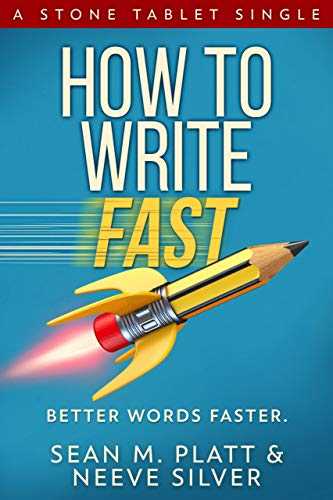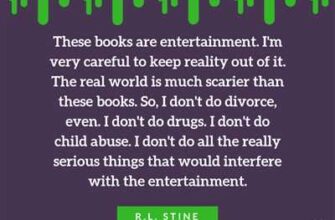
When it comes to writing fiction, there are certain areas where many writers tend to struggle. These are the areas that, if not properly addressed, can quickly derail the writing process and leave you feeling frustrated and stuck. However, by learning some key techniques and following a few simple steps, you can significantly speed up your writing and become a more efficient and productive writer.
One of the first things you need to do is get organized. Having a dedicated folder or document where you can store all your writing material is essential. This will help you keep track of your ideas, character profiles, plot outlines, and any other important elements you need to reference while you write. Using software like Evernote can be a valuable tool for organizing and keeping track of all your writing snippets, notes, and research.
Another important element in writing fiction faster is to have a clear outline of your story. This means knowing the beginning, middle, and end, as well as having a good understanding of the plot and character arcs. By having a well-defined structure, you can minimize any wasted time and focus on the actual writing process.
In addition to organization and outlining, it’s also crucial to have a good understanding of the craft of writing. This includes learning about different writing techniques, honing your storytelling skills, and constantly refining your writing style. By continually learning and improving your craft, you can become a more efficient writer and produce better quality work.
One of the biggest hurdles that writers often face is getting started. The fear of the blank page can be overwhelming, and it’s easy to get caught up in trying to create the perfect sentence or paragraph right from the start. However, it’s important to remember that the first draft is just that – a draft. It doesn’t need to be perfect, and it doesn’t need to be polished. Giving yourself permission to write a messy first draft can take off the pressure and allow you to write faster.
It’s also worth mentioning that writing fiction is a process that involves multiple stages. From brainstorming ideas to revising and editing, each part of the process has its own unique challenges and requirements. By breaking down the writing process into smaller, manageable steps, you can tackle each part more effectively and ultimately write faster.
In conclusion, if you want to write fiction faster, it’s important to take an organized and systematic approach. By learning and implementing the right techniques, organizing your writing material, having a clear outline, and allowing yourself to write freely without self-judgment, you can significantly increase your writing speed and productivity. So, don’t let the fear of the blank page or the overwhelm of a complex storyline slow you down. Take the opportunity to learn, organize, and refine your writing process, and you’ll be on the fast track to becoming a more efficient and successful writer.
- How to Write Fiction: 6 Key Categories
- Minimize distractions
- Tell us about your book and we’ll give you a writing playlist
- 2 Track and organise your ideas
- Use index cards or a folder
- Use a digital snippet storing tool like Evernote or Trello
- Video:
- How to Write FASTER First Drafts (Without Rushing!) 5 HACKS for NaNoWriMo
How to Write Fiction: 6 Key Categories

When it comes to writing fiction, there are six key categories that you could consider to make the writing process faster and more efficient. These categories involve the elements of craft, characters, plot, sequences, skill, and distractions. Let’s take a closer look at each one.
1. Craft: Writing fiction is a skill that can be refined over time. It’s important to keep track of the craft and continually work to improve it. This includes understanding the key principles of storytelling, learning from professional authors, and dedicating yourself to the craft of writing.
2. Characters: Characters are the heart and soul of any good fiction. They are the ones who drive the story forward and make readers care about what happens. Therefore, it’s crucial to create well-developed characters with depth and meaning. Consider using a character dictionary or tool to keep track of their traits and motivations.
3. Plot: The plot is the backbone of a story. It gives direction to the narrative and keeps readers engaged until the end. Create a solid plot by outlining the main events and ensuring there are no plot holes. A good plot keeps readers guessing and makes them want to keep turning the pages.
4. Sequences: Sequences are smaller, self-contained sections within a story. They help build tension and keep the reader interested. Focus on creating well-crafted sequences that flow seamlessly from one to the next. Consider using tools like Trello or a dedicated writing site to organize and track your sequences.
5. Skill: Writing fiction is not just about creativity; it’s also a skill that can be learned and honed. Improving your writing skills will increase your ability to create captivating stories. Consider reading books on the craft of writing, taking courses, or joining writing groups to further refine your skills.
6. Distractions: Writing fiction requires concentration and focus. Distractions can pull you away from your writing and make it harder to stay in the creative flow. Create a distraction-free writing environment, whether that means disconnecting from the internet, creating a dedicated writing space, or using a playlist of ambient sounds to help you concentrate.
In conclusion, writing fiction is a multifaceted process that involves a combination of elements and skills. By considering these six key categories – craft, characters, plot, sequences, skill, and distractions – you can enhance your writing process, create compelling stories, and keep readers hooked from beginning to end.
Minimize distractions
One of the biggest challenges professional writers face is staying focused on their writing process. With so many distractions in today’s world, it’s easy to get pulled away from your work and lose valuable time and energy. However, there are techniques you can use to minimize distractions and increase your productivity as a writer.
1. Create a dedicated workspace: Set aside a specific area in your home or office where you can work without interruptions. This will help you establish a routine and train your mind to focus when you enter this space.
2. Use digital tools: Evernote, for example, is a special folder where you can keep all your ideas, notes, and research in one place. By using digital tools, you can easily organize your thoughts and access them whenever you need them.
3. Turn off notifications: When you start working on your novel or any other writing project, make sure to turn off notifications on your phone or computer. This will prevent interruptions from emails, social media, or other distracting apps.
4. Create a playlist: Some writers find that background noise helps them focus better. Create a playlist of instrumental music or white noise that can drown out other distractions and help you stay focused on your work.
5. Set specific goals: Break down your writing process into small, achievable goals. For example, set a goal to write a certain number of words or complete a specific scene each day. This will give you a sense of accomplishment and motivate you to keep moving forward.
6. Limit internet use: While the internet can be a valuable research tool, it can also be a major source of distraction. Be mindful of how much time you spend online and set limits to avoid getting lost in the virtual world.
7. Avoid multitasking: While it may seem like you’re being more productive by multitasking, studies have shown that it actually decreases productivity. Focus on one task at a time and give it your full attention.
8. Take breaks: It may sound counterintuitive, but taking regular breaks can actually increase your overall productivity. Use these breaks to stretch, walk around, or clear your mind. When you come back to your work, you’ll feel refreshed and ready to dive back in.
9. Eliminate physical distractions: Remove any objects or items from your workspace that may distract you. Keep your area clean and organized so that you can fully focus on your writing.
10. Find your ideal working time: Every writer is different, so find out when you are most productive. Some writers work better in the morning, while others are more creative at night. Discover your most productive hours and schedule your writing sessions accordingly.
By minimizing distractions, you can create a conducive environment for your writing and boost your productivity. Remember, the more you practice these techniques, the better you will become at staying focused and immersed in your craft.
Tell us about your book and we’ll give you a writing playlist
Writing fiction can be a challenging task, but having the right tools and techniques can make the process much easier and more enjoyable. One key element in the craft of writing is understanding the fundamentals of storytelling, which includes creating compelling characters, crafting a well-paced plot, and setting the right tone for your novel.
When it comes to writing fiction, there are many areas to consider. Some writers like to outline their stories in detail, while others prefer to let the story unfold as they write. Whatever your preferred method, having a clear direction and understanding of what you want to achieve with your book is important.
To help you in your writing journey, we’ve designed a writing playlist that is tailored to your book. All we need from you is a brief overview of your novel and the key elements that you want to emphasize. This will allow us to create a playlist that is tailored to your specific needs.
Here are a few things to consider when telling us about your book:
- What is the genre of your book? Is it a mystery, romance, fantasy, or something else?
- Who are the main characters and what are their hopes and goals?
- What are the key incidents or events that drive the plot forward?
- Are there any specific themes or messages that you want to convey?
By giving us this information, we’ll be able to create a playlist that captures the essence of your story and helps you get into the right mindset for writing. This playlist can include music that is upbeat and energetic, or it can be more mellow and contemplative. Whatever your preference, the playlist will be designed to help you stay focused and inspired.
Remember, writing a novel is a marathon, not a sprint. It takes time, effort, and a degree of skill to create a story that will captivate readers. By using the tools and techniques we’ve provided, you’ll be able to increase your writing speed and leave those writer’s block problems behind.
So, if you’re ready to take your writing to the next level, let us help you create a writing playlist that is tailored to your book and your writing goals. Just give us a brief overview of your novel and the key elements you want to emphasize, and we’ll do the rest. Happy writing!
2 Track and organise your ideas
As writers, we often have an overflow of ideas swirling around in our heads. It’s important to find a way to capture and organise these ideas so that we can effectively utilise them when we sit down to write. One useful tool that many writers use is a folder or a document specifically dedicated to storing and organising their ideas.
Having a digital folder or document allows us to keep track of all the snippets of ideas that come our way. We can create different folders or categories based on topics or themes, making it easier to find the specific idea we need when we need it. By giving each idea a name or a title, we can quickly browse through the folders and easily locate the idea that sparks our inspiration.
Another useful tool for tracking and organising ideas is by using links. You can create links between different ideas, kind of like creating a web of connections. This way, when you have a broad topic in mind, you can click on the relevant links to access more refined ideas and details. This makes the process of organising ideas more flexible and dynamic.
When it comes to fiction writing, it’s important to have a clear understanding of the fundamentals before diving into the writing process. By tracking and organising your ideas, you can ensure that you have a solid foundation on which to build your story. This allows you to create a structure that gives your writing purpose and significance.
It’s inevitable that distractions will arise during the writing process. However, having your ideas tracked and organised can help you stay focused and avoid getting lost in the middle of a writing task. Instead of wandering aimlessly, you can turn to your idea folders or documents to regain your bearings and continue writing with clarity.
By tracking and organising your ideas, you also make it easier to share your work with others. If someone asks what your novel is about or what’s happening in a particular chapter, you can easily pull up the relevant idea and give them an overview. This is especially useful for professional writers who need to pitch their ideas or sell their work to publishers.
Using a tool designed for organising ideas, such as digital folders or documents, helps you stay organised and ensures that you don’t lose any important ideas along the way. It makes the task of writing fiction much more manageable and less overwhelming.
So, whether you’re a writer who prefers a digital folder or a document, or someone who uses a special tool, track and organise your ideas. It’s the key to starting a novel, creating strong and well-developed characters, or just having a thousand ideas ready to nail down when inspiration strikes.
In the end, it doesn’t matter how you track and organise your ideas, as long as it works for you. Find a method that suits your style of writing and stick with it. With better organisation, you’ll find that writing fiction becomes a more enjoyable and efficient process.
Use index cards or a folder
When it comes to organizing your thoughts and ideas for a fiction writing project, having a tool to help you keep everything in order is essential. One great option is to use index cards or a folder.
If you prefer a physical method, you can use index cards. Each card can represent a different element of your story, such as characters, incidents, or important plot points. You can write the names of your characters or a brief description on each card, and easily rearrange them to create a better flow or structure for your novel. This method allows you to visually see the different components of your story and easily make changes as needed.
If you prefer a digital approach, you can use a folder on your computer or a digital note-taking app like Evernote or Trello. Create a folder or board for each major topic or aspect of your story, such as characters, plot, or world-building. Within each folder or board, you can create separate notes or cards for each individual element. This allows you to easily navigate between different parts of your story and makes it easier to find specific information when you need it.
Using index cards or a folder helps you stay organized and focused during the writing process. By having all your important story elements in one place, you can easily refer back to them whenever you’re working on your novel. This saves you time from searching through multiple documents or files, and allows you to keep your creative momentum going.
Additionally, using index cards or a folder can also serve as a learning tool. As you create and refine your story elements, you can learn more about the fundamentals of fiction writing. For example, by organizing your characters in a certain way, you may discover new connections or conflicts between them. This can lead to a deeper understanding of your story and help you create more engaging and dynamic characters.
Another benefit of using index cards or a folder is that it gives you the opportunity to have a physical representation of your work. While digital tools are convenient and efficient, there’s something special about seeing your ideas and story come to life in a physical form. It can make your writing process more tangible and meaningful, and may even serve as motivation to continue working on your novel.
Whether you choose to use index cards or a folder, the most important thing is to find a method that works for you. Every writer is different, and what works for one person may not work for another. Experiment with different tools and approaches, and find the one that helps you stay organized and focused while also allowing room for creativity and exploration.
Use a digital snippet storing tool like Evernote or Trello
When it comes to writing fiction, having a reliable tool to keep track of your ideas and snippets of inspiration is invaluable. That’s where digital snippet storing tools, such as Evernote or Trello, come in handy. These tools provide writers with a convenient and organized way to gather, store, and access their writing material.
For many writers, ideas come at the most unexpected times, like during a sales meeting or while waiting in line at the grocery store. With a digital snippet storing tool, you can quickly jot down these ideas and keep them in one place for future reference. No more lugging around a notepad or scraps of paper.
But having a digital snippet storing tool is not just about keeping track of ideas. These tools can also help you outline your story, develop your characters, and keep a record of important plot points. They provide writers with a space to brainstorm, organize their thoughts, and visually map out the direction of their story.
Imagine this scenario: a writer is in the middle of writing a novel and needs to reference a specific sequence of events that occurred earlier in the story. Instead of having to flip through pages of a physical document or scroll through a long Word file, the writer can simply open their digital snippet storing tool and quickly find what they’re looking for. Having all the necessary information at their fingertips can greatly increase efficiency and save valuable time.
Furthermore, a digital snippet storing tool allows writers to categorize their ideas and snippets into different folders or cards. For example, you could have folders for character development, plot ideas, or research. This organization makes it easier to find specific information when you need it and gives you an overview of all the elements of your story in one place.
But it’s not just about organization. These tools also offer writers a way to collaborate with others. You can share your snippets, notes, or folders with a co-writer, an editor, or anyone else involved in the writing or publishing process. This can help ensure that everyone is on the same page and working towards the same goal.
In conclusion, using a digital snippet storing tool like Evernote or Trello can be a game changer for fiction writers. It provides a space to capture and store ideas, develop characters and plotlines, and keep organized throughout the writing process. It can save time, increase efficiency, and ultimately lead to a more polished and well-developed story. So, if you’re a fiction writer looking to streamline your writing process, give these tools a try and see how they can enhance your storytelling skills.








